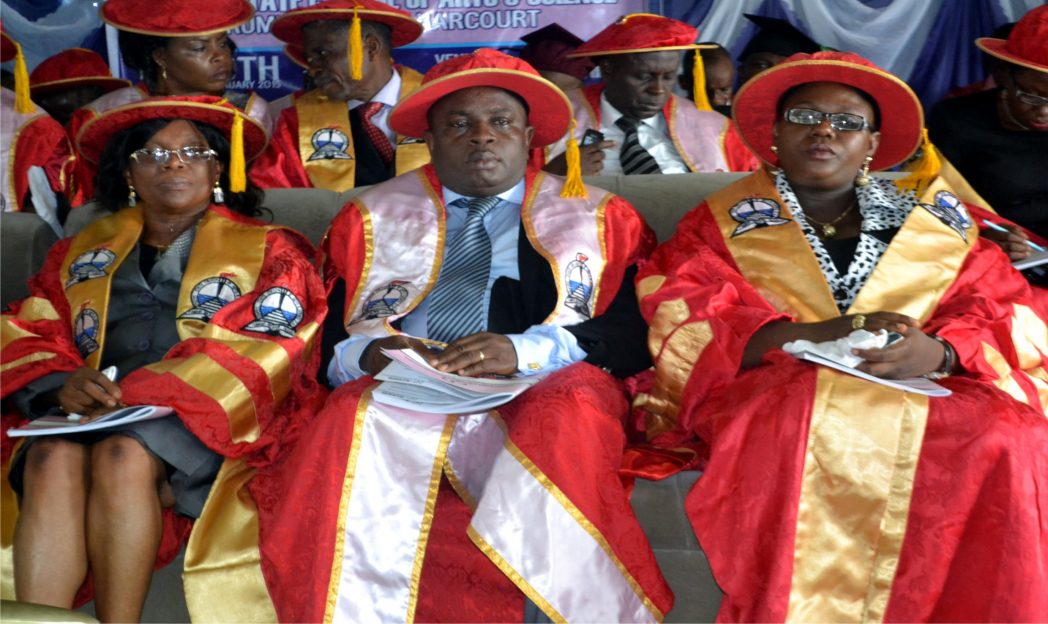Education
Don Identifies Gaps In NAFDAC’s Regulatory Regime
A university don, Pro
fessor Victor Kiri of the University of Limerick, Ireland, has identified gaps in the regulatory regime for the distribution of drugs by the National Agency for Food, Drugs Administration and Control (NAFDAC).
Professor Kiri, who made the identification, midweek, as part of series of lectures marking the 2015 “Founders’ Day” of the University of Port Harcourt (UNIPORT), suggested the development of a protocol involving active surveillance to minimize the distribution of fake drugs in Nigeria.
In his lecture, titled “The Potential Value of Multi-Disciplinary Research into the problem of fake drugs in Nigeria: A Realistic Path Way,” Professor Kiri stressed the need to apply statistical analysis to contain fake drugs distribution in Nigeria.
“There is no mechanism from NAFDAC on how to control the movement of drugs in Nigeria and in the circulation of fake drugs. It is impossible to recall fake drugs from the counter in the Nigeria market”, he said.
The Professor of Epidemiology therefore suggested a multi-disciplinary approach to solve the problem.
While acknowledging the gap between the volume of research generated, and poor data analysis, the Vice Chancellor of UNIPORT Professor Joseph Ajienka in his speech called on scholars to form inter-disciplinary research teams that should include statisticians and scholars with diverse background,s rather than publishing exclusively for purposes of seeking promotion.
In another lecture “titled The Importance of Bio-Gas Industry in Nigeria,” presented by a Professor of Chemical and Biochemical Engineering, John Villadsen of the Technical University, Denmark, stressed the importance of bio-resources in solving health-related challenges.
Professor Villadsen predicted that Biotechnology will be key factor of developments in the 21st century. He noted that there was a huge profit in the conversion of gas to protein for the production of animal feed.
According to him, the emergentb bio-industry hinged on conversion of raw materials from agriculture into industrial chemical, pharmaceuticals, feeds for animals and new crop variety.
While expressing optimism over what he called “greet opportunities” in Nigeria, Professor Villadsen noted that, the emergent biotechnology industry would yield benefits to the country (Nigeria) just as it has done in Denmark and other European countries.
Presenting the third lecture, titled “Thinking, Research and Communication in Development of Science and Indigenous Technology”, Director of the Science Institute in UNIPORT, Professor Onyewuchi Akaranta, noted the significant of effective communication.
“Effective communication is crucial to bridging the gap between the production of new knowledge and application of that knowledge to either practice or policy”, he said.
He therefore advised indigenous scientists to recognise the need to communicate the significant of their knowledge to soecity.
He noted that the missing link between research and development in the university was the absence of academic research in the market.
“We have not been able to take the indigenous technology of our people to a level that would be acceptable on a worldwide scale. We need to patent, publish and come out with products that would be beneficial to society”, he said.
Sogbeba Dokubo
Education
Elga boss tasks law students on academics strides

Education
Association harps on importance of mother tongue in society

Education
UNIPORT Hails Odusote’s Historic Appointment as First Female Director-General of Nigerian Law School

-
Maritime4 days ago
Nigeria To Pilot Regional Fishing Vessels Register In Gulf Of Guinea —Oyetola
-

 Sports4 days ago
Sports4 days agoGombe-Gara Rejects Chelle $130,000 monthly salary
-
Maritime4 days ago
Customs Declares War Against Narcotics Baron At Idiroko Border
-
Maritime4 days ago
NIMASA,NAF Boost Unmanned Aerial Surveillance For Maritime Security
-

 Sports4 days ago
Sports4 days agoTEAM RIVERS SET TO WIN 4×400 ” MORROW” …Wins Triple jump Silver
-

 Sports4 days ago
Sports4 days agoNPFL Drops To 91st In Global League Rankings
-

 Sports4 days ago
Sports4 days agoNIGER DELTA GAMES PANACEA TO YOUTH DEV”
-

 Sports4 days ago
Sports4 days agoNPFL Impose Fines On Kwara United Over Fans Misconduct


